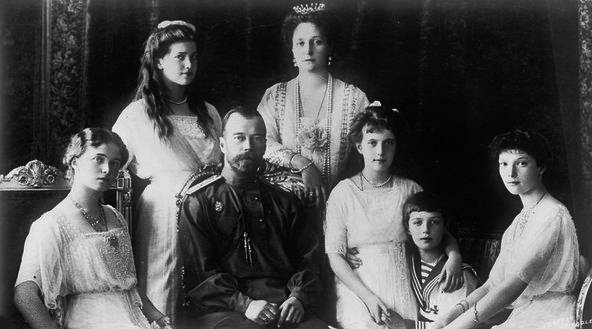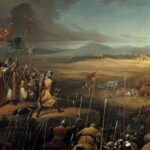Why in 1917, did Tsar Nicholas II not fully appreciate the impending danger to him and his family? Tsar Nicholas II of Russia faced a complex set of challenges during his reign, and there were several factors that contributed to his failure to fully appreciate the impending danger in 1917. Some key reasons include:
Autocratic Rule:
Nicholas II believed in the absolute power of the tsar and the autocratic system. He was resistant to political reforms and was slow to adapt to changing social and political conditions. This mindset made it difficult for him to address the growing discontent and demands for political change within Russia.
World War I:
The outbreak of World War I in 1914 put enormous pressure on the Russian economy and society. The war strained resources, led to food shortages, and resulted in widespread suffering among the Russian people. Nicholas II’s decision to take personal command of the Russian Army also meant that he was directly associated with the failures and losses on the Eastern Front.
Rasputin’s Influence:
The influence of Rasputin, a controversial and mystic figure, on the Romanov family further damaged Nicholas II’s credibility. Rasputin’s presence at the royal court and his perceived influence over the Tsarina Alexandra fueled rumors and contributed to the negative perception of the imperial family.
Ineffective Reforms:
Nicholas II did attempt some reforms, such as the creation of the Duma (parliament) in response to the 1905 Revolution. However, these reforms were limited, and the Tsar often dissolved the Duma when it opposed his policies. The lack of meaningful reforms left many social and political issues unresolved.
Isolation from Reality:
The Tsar and his immediate circle were often isolated from the day-to-day struggles and challenges faced by the Russian people. This disconnect prevented Nicholas from fully grasping the depth of discontent and the extent of the social and economic problems in the country.
Advisor Disagreements:
Nicholas II received conflicting advice from his advisors, and the lack of a cohesive strategy among his counselors contributed to confusion in decision-making. This disarray hindered the Tsar’s ability to respond effectively to the growing unrest.
In summary, a combination of autocratic beliefs, the challenges of World War I, Rasputin’s influence, ineffective reforms, isolation from reality, and internal conflicts within the royal circle all played a role in preventing Nicholas II from fully appreciating the impending danger to his rule in 1917. These factors eventually led to the abdication of the Tsar and the collapse of the Romanov dynasty during the Russian Revolution of 1917.


